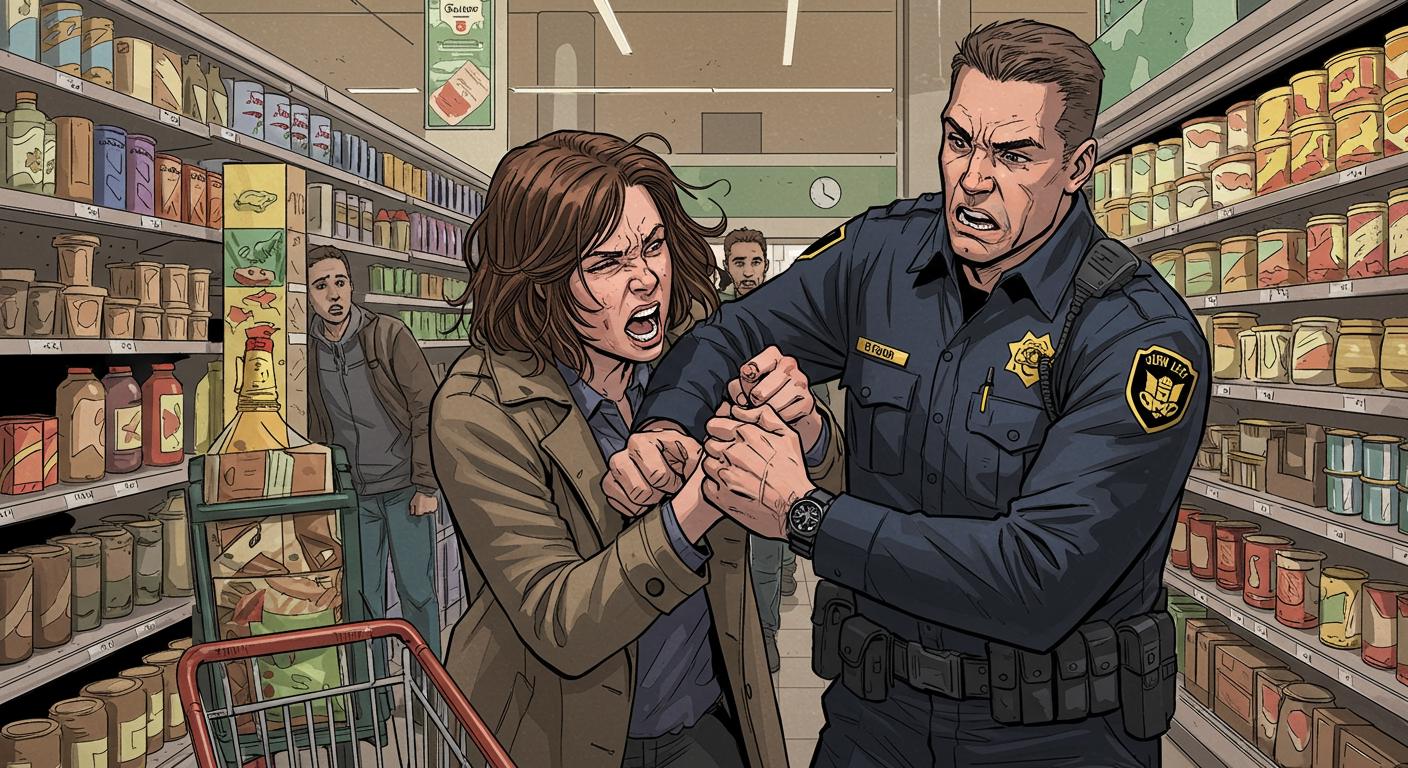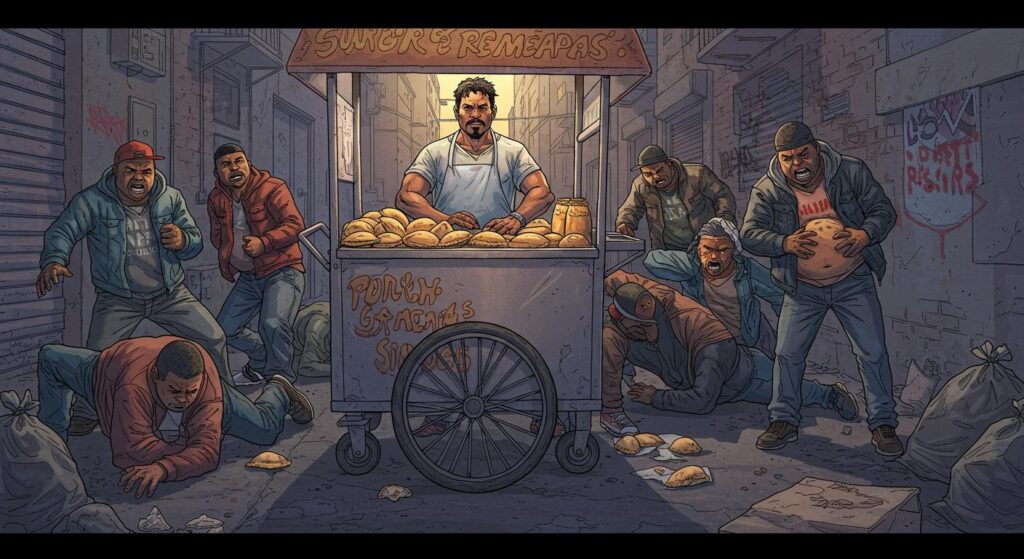Let’s file this one under: the surreal intersection of petty crime, public health, and the kind of news headline that, if you saw it on a tabloid rack, you might assume it belonged somewhere between tales of Elvis sightings and spontaneous potato chip Jesus. Yet, as documented by The Sarnia Observer, the events unfolded with the sort of grim pragmatism unique to real life in Ontario—no supernatural ingredients required, just a grocery theft that escalated to a literal tooth-and-nail defense.
Checkout Counter Escalation
Jerica Trowbridge, a 30-year-old Sarnia resident, became a recurring figure in the local theft landscape, supposedly frequenting a gas station for unpaid goods and, with less subtlety, relieving the Quinn Drive LCBO of its wares on five separate occasions. Trowbridge’s exploits came to a dramatic head at the Exmouth Street No Frills when she was confronted by a loss-prevention officer after a suspiciously pared-down shopping cart emerged from her washroom break. Court records cited in the Observer reveal that, when faced with detainment, Trowbridge’s response was stark: she bit the officer, an act characterized by the assistant Crown attorney as both “gross” and a source of infection risk.
In remarks during sentencing, Michael Donald didn’t hold back, decrying the severity of the assault and the dangers inherent in such a bite. This sentiment found echoes from Justice Krista Lynn Leszczynski, who described the biting incident as “concerning” and acknowledged the particularly distressing nature of the encounter for the victim. Apparently, this loss-prevention gig has morphed from monitoring the bulk bins to running a gauntlet of unexpected hazards.
The Current of Addiction
But, as is so often the case, the real story extends beneath the fluorescent lights of the supermarket. Defense lawyer Robert McFadden, addressing the court, attributed Trowbridge’s repeated thefts and erratic behavior to a consuming opioid addiction. As described in the article, McFadden recounted just how deeply entrenched her dependency had become: two months prior, Trowbridge was reportedly in such rough shape that keeping track of dates was beyond her grasp.
Since landing in custody, though, there’s been an apparent turnaround. Trowbridge is now on opioid replacement therapy, her improvements noted in court and, as the defense asserted, visibly apparent. The Observer recaps Trowbridge’s own words, with her stating regret for her actions—wishing she could rewind her decisions, if only time travel were a sentencing option. The judge, seizing on this flicker of hopeful resolve, reminded her that change remains possible moving forward, urging a commitment to sobriety once her sentence is up.
Persistence, Prohibition, and Public Order
Perhaps most striking is the doggedness of the thefts themselves. Prosecutors highlighted that even multiple apprehensions failed to deter Trowbridge; the urge to reinforce her addiction easily overrode any fear of consequences. The court acknowledged this, with Donald explaining that addiction “is more important” than the threat of getting caught. The repercussions are now concrete: a three-month jail term, and—because every contemporary tale needs a modern twist—a year-and-a-half ban from all LCBO locations in Sarnia and throughout Lambton County. One can’t help but wonder how effectively such legal boundaries function when addiction keeps rewriting the rules of daily existence.
Reflection: When Mundane Turns Macabre
Incidents like this make you question where, exactly, the border sits between everyday life and the surreal. A grocery store, at its best, is a monument to the ordinary—neon-lit, unremarkable. Yet with one desperate bite, the familiar transforms into something memorable for all the wrong reasons.
There’s an uneasy irony to it all: supermarket theft becomes a headline not because of some record-setting haul, but because it ended with the kind of behavior usually seen in fables or cautionary medical tales. At the same time, it’s a sobering portrait of how addiction can erode the foundations of choice until the bizarre becomes routine. One can only hope Trowbridge’s story, once her sentence concludes, takes a turn for the quieter and decidedly less toothy. In the meantime, perhaps we have new appreciation for the unsung hazards faced by those keeping our produce—and themselves—safe.







